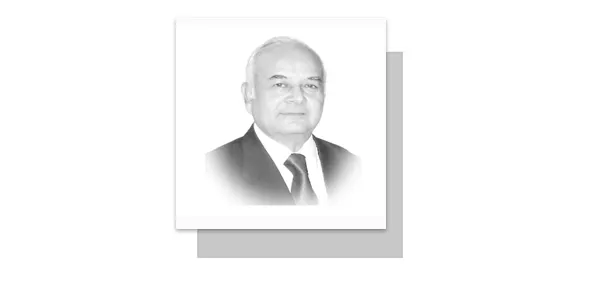IN the landscape of global economics, Pakistan stands at a critical juncture, grappling with challenges that demand urgent attention and innovative solutions. While it’s easy to dwell on the weaknesses plaguing the Pakistani economy, it’s imperative to recognize that amidst adversity lies opportunity. Despite its vulnerabilities, there are aspects of Pakistan’s economy that hold promise for revitalization and growth. However, unlocking this potential requires bold leadership, strategic planning, inside out rebuilding, and a ruthless commitment to fundamental reforms.
At the heart of Pakistan’s economic conundrum lies a dependence on borrowing—a precarious foundation upon which the nation’s financial stability rests. As the adage goes, “any chain is as strong as its weakest link,” and in Pakistan’s case, this weak link threatens to undermine the entire economic edifice. With the government teetering on the brink of fiscal insolvency, urgent measures are needed to break free from the cycle of perpetual borrowing.
The call for an economic emergency and the formation of a specialized task force, headed by an eminent figure who is equally respected in the West and China, Dr. Ikram ul Haq (a world-renowned international taxation expert, economist, reformist and advocate supreme court), Dr. Ashfaq Hasan Khan, and Dr. Akmal Hussain (both of them are foreign qualified, internationally acclaimed and highly experienced experts on all the facets of the national and international economic affairs) underscores the gravity of the situation. This proposed initiative, operating under the umbrella of the Special Investment Facilitation Council (SIFC), represents a paradigm shift in Pakistan’s approach to economic management. By harnessing the expertise of renowned international tax experts, economists and reformists, Pakistan can chart a new course towards sustainable growth and development.
Central to this endeavor is a multifaceted approach aimed at addressing the root causes of Pakistan’s economic woes. This approach entails a recalibration of fiscal priorities, a restructuring of the energy sector and a comprehensive overhaul of the taxation system. Rather than relying solely on borrowing to finance government expenditure, there must be an extremely strict effort to reduce wasteful spending and broaden the tax base with minimum disruption in the society.
One of the glaring disparities in Pakistan’s economic landscape is the stark contrast between the privileged elite and the marginalized masses. With over $17 billion per annum sucked by the elite privileges, there exists a glaring imbalance that undermines the principles of equity and social justice. Addressing this disparity requires not only fiscal prudence but also a commitment to redistributive policies that prioritize the needs of the most vulnerable segments of society.
Furthermore, the energy sector presents both a challenge and an opportunity for Pakistan’s economic revitalization. By investing in renewable energy sources and modernizing existing infrastructure, Pakistan can reduce its reliance on costly imports and mitigate the impact of high energy costs coupled with gas shortages on economic productivity. Additionally, initiatives aimed at promoting energy efficiency, minimizing theft and conservation can yield significant long-term dividends, both in terms of cost savings and environmental sustainability.
However, the success of any economic reform initiative hinges on political will and institutional capacity. Past efforts at reform have been hampered by bureaucratic inertia, vested interests and short-term political calculations. To overcome these obstacles, there must be a collective commitment to transparency, accountability and good governance. This entails not only enacting reforms but also ensuring their effective implementation and enforcement.
Moreover, the role of international partnerships and cooperation cannot be overstated in Pakistan’s journey towards economic revitalization. By leveraging external expertise, investment and technical assistance, Pakistan can access new markets, transfer knowledge and foster innovation. From forging trade agreements to participating in multilateral development initiatives, Pakistan must position itself as a proactive and reliable partner in the global economy.
In conclusion, while the challenges facing Pakistan’s economy are formidable, they are by no means are insurmountable. By embracing bold reforms, harnessing the expertise of seasoned professionals and fostering a culture of innovation and entrepreneurship, Pakistan can unlock its full economic potential. The proposed initiative to impose economic emergency and establish a specialized task force represents a critical first step towards this end. However, success will ultimately depend on the collective efforts of government, civil society and the private sector to chart a new course towards prosperity and inclusive growth. As the world watches, Pakistan has the opportunity to rewrite its economic narrative and emerge as a beacon of resilience and progress in the global arena.
—The author writes on strategic, political, economic, current affairs & sports.
Email: nayyarahmad51@gmail.com










